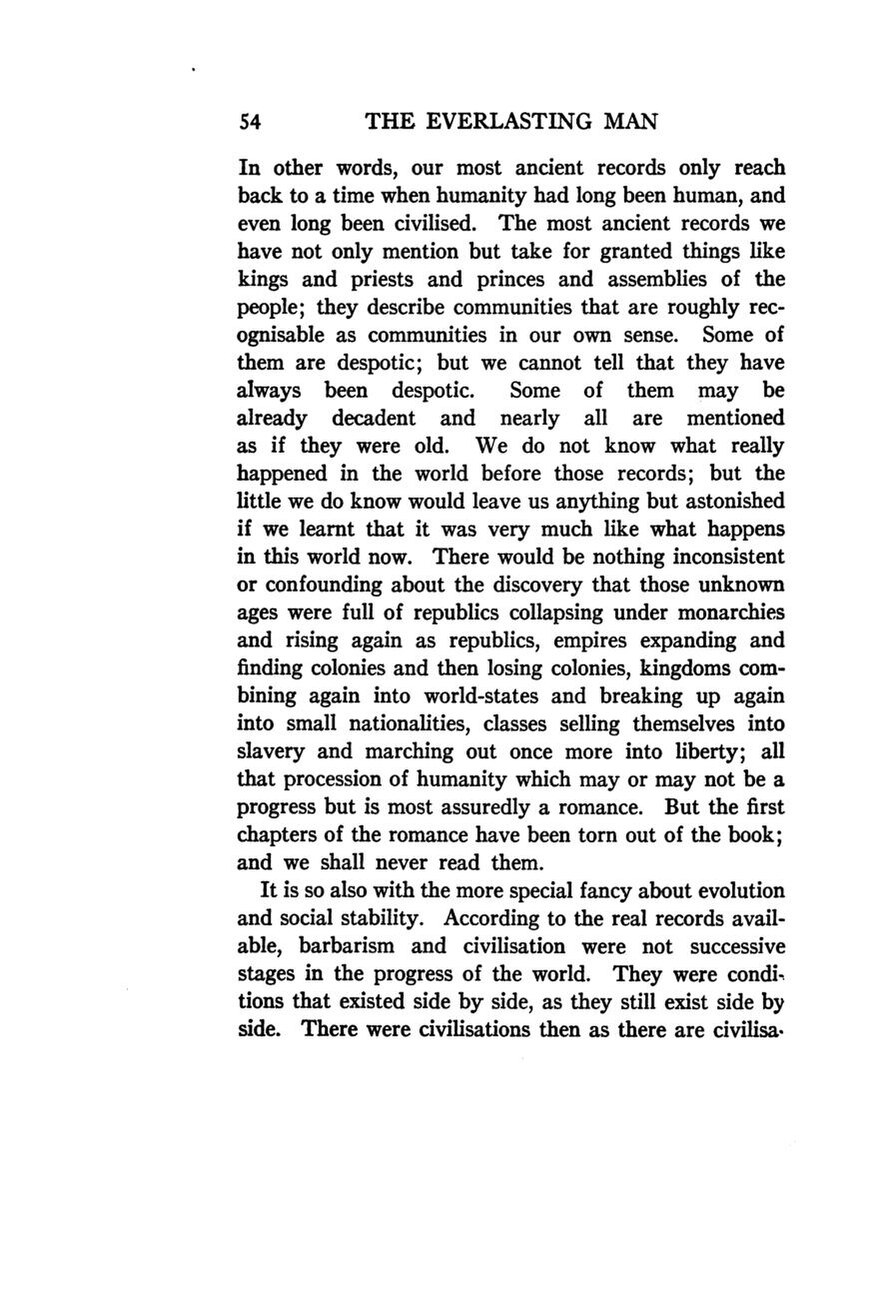In other words, our most ancient records only reach back to a time when humanity had long been human, and even long been civilised. The most ancient records we have not only mention but take for granted things like kings and priests and princes and assemblies of the people; they describe communities that are roughly recognisable as communities in our own sense. Some of them are despotic; but we cannot tell that they have always been despotic. Some of them may be already decadent and nearly all are mentioned as if they were old. We do not know what really happened in the world before those records; but the little we do know would leave us anything but astonished if we learnt that it was very much like what happens in this world now. There would be nothing inconsistent or confounding about the discovery that those unknown ages were full of republics collapsing under monarchies and rising again as republics, empires expanding and finding colonies and then losing colonies, kingdoms combining again into world-states and breaking up again into small nationalities, classes selling themselves into slavery and marching out once more into liberty; all that procession of humanity which may or may not be a progress but is most assuredly a romance. But the first chapters of the romance have been torn out of the book; and we shall never read them.
It is so also with the more special fancy about evolution and social stability. According to the real records available, barbarism and civilisation were not successive stages in the progress of the world. They were conditions that existed side by side, as they still exist side by side. There were civilisations then as there are civilisa-
